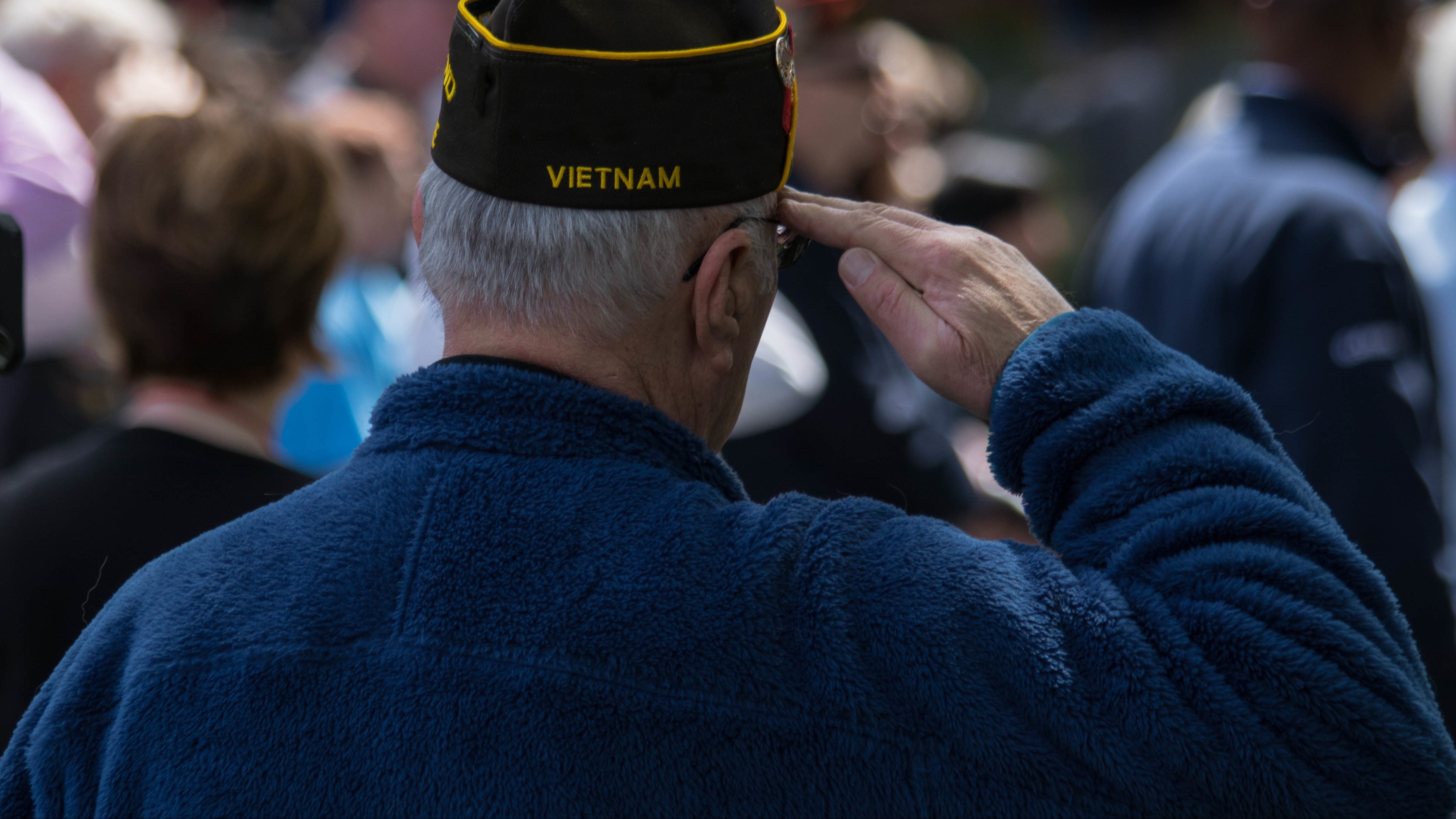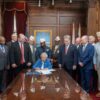The Alabama Department of Veterans Affairs has installed special equipment in the state’s four homes for veterans to combat COVID-19. That specialized equipment, and the ongoing vaccinations of residents and staff, have department leaders hopeful that the health pandemic that’s hit the state’s homes for veterans hard, is turning a corner.
Kent Davis, the commissioner of the Alabama Department of Veterans Affairs, told APR on Wednesday that the needlepoint bi-polar ionization systems installed in the homes’ HVAC units can destroy 99 percent of airborne pathogens. Additional portable UV lighting systems were also purchased, which are being used to sanitize surfaces in the homes.
The equipment is meant to combat COVID-19, but Davis said it will also help reduce annual flu outbreaks and other airborne pathogens that the homes routinely deal with. The $620,000 cost for the equipment and installation is being paid for through federal CARES Act funding, Davis said. The department is currently in the planning phase of building a new home for veterans in Enterprise.
“We’re going to incorporate some of these multi-layered air defense systems in the design of the new home as well, so it’s it’s been a learning experience,” Davis said. “And it’s not just the air systems that we’re going to incorporate some lessons learned. The basic design of the facility, the airflow, the ability to isolate patients.”
“If there’s any silver lining, we’ve learned a lot of lessons from COVID-19 on infectious diseases, and sometimes the basic design of a facility plays into that,” Davis said.
The department began COVID-19 vaccination clinics in December as part of the federal program that uses pharmacies to administer life-saving inoculations. The first two of three planned vaccination clinics have wrapped up at each home, Davis said, and the third clinics at all the homes are scheduled to be completed by Feb. 23.
“Were at about 90 percent participation rate on residents,” Davis said of those willing to receive vaccinations.
Some of those who haven’t been vaccinated are currently not able to for medical reasons, Davis explained, so the participation rate is likely to be higher than 90 percent.
“They’ve lived with this outbreak for almost a year now, so a lot of them have expressed true relief. They say this is more than the light at the end of the tunnel. We really think this is the big tool that’s gonna help end this whole crisis that we’ve been living through,” Davis said.
Participation among staff is lower, at around 40 percent, but Davis said that mirrors what nursing homes are seeing. The Washington Post reported that approximately 80 percent of nursing home workers in Maryland and Washington D.C. chose not to be vaccinated during the first round, while about 60 percent in Ohio opted out. Davis said the department has worked to convince staff that the vaccines are safe and effective, but there’s been hesitancy, especially among the younger workers.
Davis said beginning March 1, the department will be able to administer the Moderna vaccine in-house at the four homes, which will expand vaccinations beyond those planned clinics and ensure that incoming residents can get vaccinated quickly.
In December, the department was able to begin offering monoclonal antibody treatments to those residents who tested positive for COVID-19 and who have mild- to medium-level symptoms and the drug appears to be effective.
Davis said of those residents at the Colonel Robert L. Howard State Veterans Home in Pell City who received the treatments, none have had to be admitted to a hospital for treatment.





















































